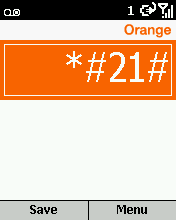 I was recently asked to elaborate on my statement in a previous blog that USSD is a cul-de-sac. (Read the blog here.)
I was recently asked to elaborate on my statement in a previous blog that USSD is a cul-de-sac. (Read the blog here.)At the outset, I need to emphasise that I do believe that USSD is an excellent channel to deploy mobile banking solutions. It should always be considered in designing mobile banking solutions and is best suited for deployments where the mobile operator is involved in setting up the solution, but is not prepared to allow banking applications on their SIM cards. It is also well-suited for countries where a culture of "short-code" based solutions are entrenched. I have previously blogged on some of the mis-conceptions of USSD. (See here)
My statement about a "cul-de-sac" was based on my view of where different consumer access channels will evolve to over the next few years. In other words to what extend USSD applications and architectures will be suited for new generation platforms and user-interfaces. I believe that USSD mobile banking applications will not easily evolve to benefit from improved user-interfaces that will become more entrenched in new-generation handsets/phones. I also cannot see how USSD applications can evolve to benefit from the expected advances in improved security paradigms that will more and more be based on certificate and encryption paradigms. Also, the inherent architecture of USSD applications (predominantly based on sessions and grabbing hold of an array of network resources in order to complete a transaction), will not be able to benefit from improvements in network architecture and particularly 3G designs. As data-connections reduce in cost and increase in accessibility, USSD applications will slowly get replaced by applications based on GPRS and IP-protocol.
In summary, I do not believe that USSD designs are positioning mobile banking providers well from a strategic perspective. I would urge banks and mobile operators to work with suppliers that provide USSD applications in such a way that mobile banking can evolve as new technologies become available. These new technologies (3G, new handsets, new security paradigms) are less likely to enhance investments in USSD.


7 comments:
USSD is very powerfull but not deployed in every country nor by all the mobile operators in a same country.
On the other hand (mobile) internet is universal.
May be by developping multi channels approach banks will be in position to address all the customer needs : USSD (if available), secure SMS if available(via SIM cryptography), mobile internet (or/and java application, etc).
You are wrong -- USSD is the channel for mobile banking, at least in developing world where mobile banking has the most to offer.
I wonder if you have seen this paper, I recommend you read it, www.finmark.org.za/documents/MBTechnologies_risks.pdf
Ivan
http://eyeline.mobi/blog/
Hi Luk
Thanks for the comment. I have seen the paper (and many others produced by Finmark). I also know the authors of the paper well and understand their perspective and orientation in writing this specific paper.
My credentials in writing this blog, is that I have deployed more than twenty mobile banking solutions (most of these in developing economies) - (some of them using USSD as the carrier). I am speaking on the basis of personal experience.
The more I think about it, the more I believe that you could be right, but for...
...the question whether USSD is the dead end is up to the operator to decide, and if USSD mobile banking is good, and there is no extra money to re-do it (world financial crisis) through the Internet (is it what a 3G substitute is?), why not leave mobile banking in USSD, even though you have 3G? Or 4G?
Or: make it easier to access the Internet using USSD? That's the only technology which makes the easiest and the most universal (1G+2G+3G+4G) access to services?
It is also FREE when roaming.
And the capacity-hungry myth has yet to be proved.
Ivan
p.s. I didn't know you are such an expert in mobile banking! What a find! I have many inquiries about it, I would love to have your expert opinion, if I can ask.
hi your posting helpfull me
thanks
Hi, we are a Carrier at south America, with our first MPayment implementation using USSD.
We are experimenting some end user problems, who complain for the excesive typing. Anyways, we are looking for a new solution that involves PKI.
Could you please let us know anything about this? I mean, white papers, links o any useful information about using SIM cards with PKI, including providers?
THANK YOU a lot!
Pablo
Pablo - Please contact me direct on Hannesvr AT hotmail DOT com
Post a Comment